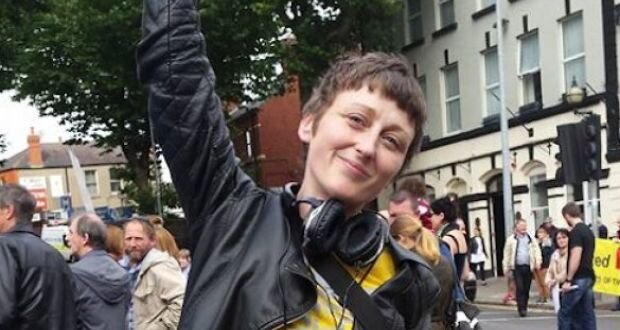Establishment Fails To Protect Women From New Forms Of Crime - Just As It Did From Old
On Wednesday, 18th November, it emerged that over 140,000 pictures of women and girls had been shared online without their consent. It is believed that thousands of these images are of Irish women and girls.
Some of these images were stolen from private online accounts. Others were taken in public without the women/girls involved being aware of it, while some had been sent in confidence to an ex-partner who later shared them online.
While some of these pictures of women were taken originally with their consent, these pictures were then uploaded and shared without their explicit consent. This type of abuse is called Image Based Sexual Abuse (IBSA).
IBSA is more popularly known as ‘revenge porn’. However, this is not an accurate term; these types of images have nothing to do with revenge and the term gives the impression that these women and girls did something to deserve these images being released without consent. These behaviours are sexual abuse and should be regarded as such.
The effect of IBSA can be devastating on a person and can have far reaching consequences. Women have lost their jobs or have had their relationships damaged by it. IBSA can cause depression, anxiety, and PTSD. There have been instances where women have lost their lives due to IBSA.
One such victim was Dara Quigley, a journalist, blogger and activist who died by suicide after experiencing IBSA. In early April 2017 Dara, who was having a psychotic episode at the time, was filmed on CCTV walking naked down Harcourt Street in Dublin. She was subsequently arrested leading to a Garda making a recording of the CCTV footage showing a deeply distressed, naked Dara.
The Garda then sent this recording to a WhatsApp group and from there it went online where it was viewed by tens of thousands of people. On April 12th Dara became aware of the footage and took her own life.
The garda that recorded and shared the footage of Dara did not face any criminal prosecution. IBSA was not a punishable offence then and it still is not now. IBSA can be reported to the Gardai but it is not illegal, and perpetrators currently do not face any criminal prosecution.
Dara Quigley
The only current legislation that even begins to address IBSA is Section 10 of the Non-Fatal Offences Against the Person Act 1997. The act states that it is illegal to harass an individual to the point of distress or to interfere with their privacy.
While this act covers harassment, the language used in Section 10 is not easily transferable to online harassment. On top of this, the definition of harassment used is ‘persistently following, watching, pestering, besetting or communicating’.
Therefore, in order to be convicted of harassment it is required that a pattern can be determined. This is very difficult to prove when it comes to IBSA and makes this legislation largely useless for victims of it.
Making IBSA an offence in the Twenty-Six Counties was first proposed in 2017 under the Harassment, Harmful Communications and Related Offences Bill. This bill proposed that perpetrators of IBSA be liable to a class A fine (€5,000 max) or a six month to seven-year prison sentence, depending on the case.
Despite being proposed more than three years ago, this legislation has yet to be signed into law - a failure which leaves Irish women and girls vulnerable to IBSA every time they go online or open the curtains of their home or step outside their front door.
After almost ten years in power, Fine Gael have still failed to deliver IBSA legislation
The failure of the political establishment to protect women and girls from this new form of crime fits perfectly into a decades-long pattern of failing to protect women and girls from so many other forms of much older crimes.
Without the appropriate legislation being in place, it comes as no surprise that the Gardaí have no plans to launch a formal inquiry into the non-consensual online distribution of potentially tens of thousands of images of Irish women.
Instead we have the bizzare claim by Garda Commissioner, Drew Harris, that Gardaí had already reviewed over 10,000 images of the images in question and found no incidence of child pornography among them.
Child porn, in this instance, is described as a sexually explicit image of a person under the age of 18. How exactly the Gardaí were able to accurately determine the ages of thousands of individuals within such a short period of time and to determine that not one was under the age of 18 remains unclear.
Drew Harris wants women to report a crime that isn’t legally recognised as a crime
According to Harris, no further investigation will be carried out into the sharing of these images because no woman has made a formal complaint in relation to the sharing of their image. Harris failed to explain why, or indeed how, a woman would report something that isn’t legally recognised as a crime.
As mentioned above, Section 10 of the Non-Fatal Offences Against the Person Act 1997 requires a woman to prove that she had been harassed, coerced, or otherwise abused in some way, by the sharing of these images. In other words, Harris is putting the onus onto the women in question to provide evidence that goes far beyond the act of a non-consensual sharing of their image.
Éirígí is calling for all forms of IBSA to be outlawed without any further delay, and for it to be treated as of serious form of abuse, akin to other forms of abuse that already legislated for.




